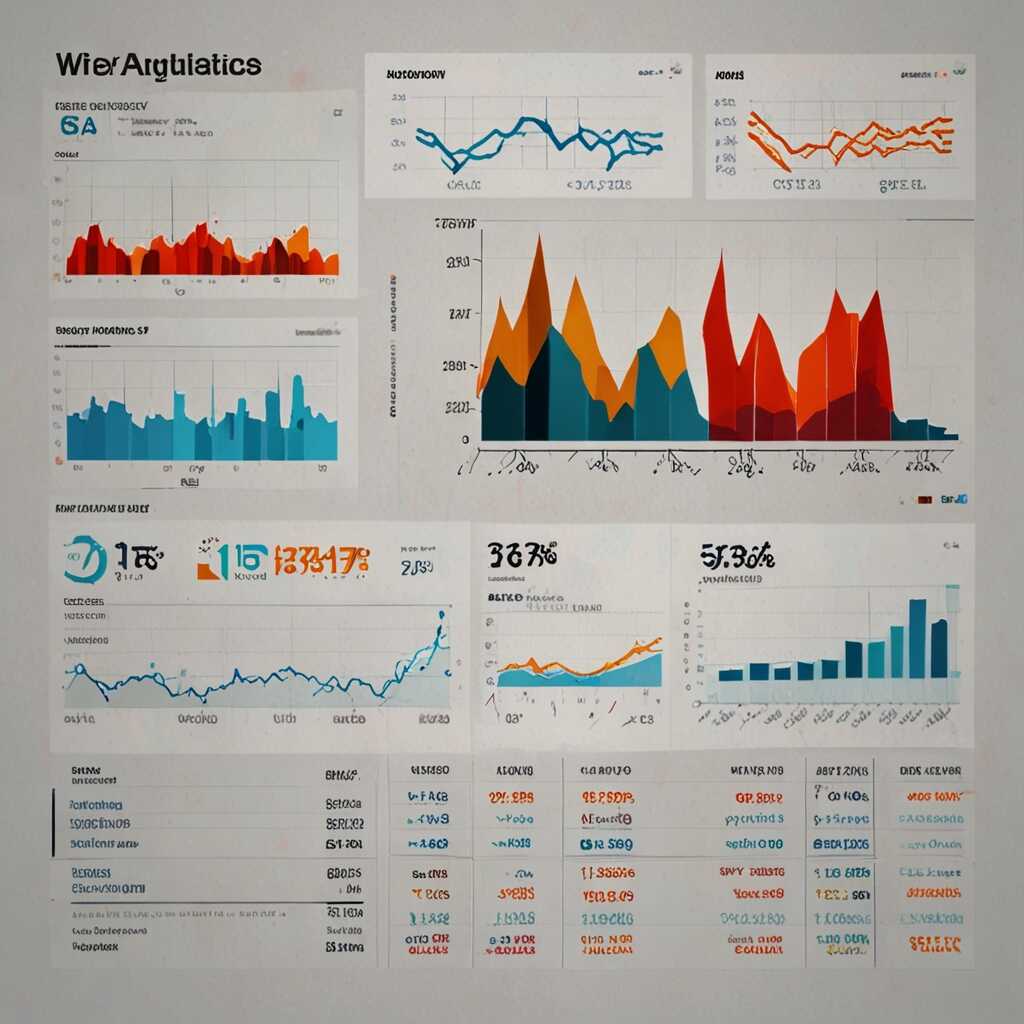How to speed up website indexing is crucial for enhancing your site’s SEO performance. Faster indexing can lead to improved organic search visibility, allowing more users to discover your content. At Metrics Rule, we understand the importance of timely indexing and have developed effective strategies to achieve this. By implementing these techniques, you can optimize your website’s structure and content for quicker indexing, ultimately boosting your search engine rankings.
Understanding the Importance of Website Indexing for SEO
Website indexing is the process by which search engines like Google and Bing analyze and store page information from the web. This process is crucial for SEO because effective indexing directly impacts a website’s search engine visibility and ranking potential. The way search engines determine which pages to index includes evaluating the site’s structure, content quality, and backlinks. In fact, studies show that only about 60% of web pages are indexed by major search engines, underscoring the need for website owners to enhance their indexing speed. By optimizing for prioritization in crawling efficiency, you can significantly improve your overall SEO performance.
How Can I Improve My Website’s Indexing Speed?
Improving your website’s indexing speed involves several techniques designed to enhance its overall SEO performance. First, ensure that your sitemap is clear and submitted to search engines, allowing for easy identification of your important pages. Additionally, optimizing your website’s structure and content can help search engines crawl more effectively. Regularly auditing your site helps identify issues that could hinder indexing. Tools like Google Search Console offer insights into how your site is indexed, helping you make data-driven decisions. Finally, enhancing loading speed and ensuring mobile-friendliness are essential features that provide a better user experience, further improving overall indexing outcomes.
Principal Factors That Affect Your Website’s Indexing Speed
Several key factors impact website indexing speed. First, website structure plays a crucial role. A well-organized site with a clear hierarchy helps search engines crawl efficiently. Secondly, page loading speed directly affects indexing time. Google prioritizes faster-loading pages, as they enhance user experience. Finally, effective sitemap optimization ensures search engines can quickly discover new content. Together, these elements determine how swiftly your pages appear in search results.
Optimizing Your Sitemap for Faster Indexing
Optimizing your sitemap is essential for enhancing indexing speed. A well-structured sitemap provides search engines with vital information about your site’s content. Make sure your sitemap includes all critical pages and is formatted correctly. Regular updates to your sitemap are necessary when you add new content. You should also submit your sitemap to Google Search Console. This action ensures that Google quickly identifies changes and indexes your pages more efficiently. Using sitemaps effectively helps improve your site’s overall SEO performance.

Best Practices to Optimize Your Website Structure for Faster Indexing
To enhance your website’s indexing speed, focus on key elements of your site structure. Essential components include a clear hierarchy, user-friendly navigation, and clean URLs. This simplified architecture ensures search engines can crawl and index your pages efficiently. Additionally, utilize a well-structured sitemap, which provides vital information about your site’s layout. Tools like Google Search Console and analytics platforms are useful for monitoring crawling issues and identifying areas for improvement. By applying these site structure best practices, you can achieve better indexing results and improve your overall SEO performance.
Utilizing SEO Tools for Effective Website Structure Management
SEO tools can help refine your website architecture significantly. Tools like Screaming Frog and Moz offer in-depth analyses of your site structure. They can identify broken links, missing alt tags, and duplicate content—all crucial for enhancing indexing speed. Furthermore, consider using Google Search Console to submit your sitemap directly. This process enables search engines to discover new content quickly and accurately. By regularly reviewing and optimizing your website using these SEO tools and techniques, you ensure a reliable and efficient site structure that supports your indexing goals.
Key Figures for Accelerating Page Recognition
- Google indexes over 30 trillion pages across the web.
- On average, a new page may take 4 to 10 days to be indexed.
- Approximately 75% of searchers never go past the first page of results.
- Crawling issues can delay indexing by days or weeks.
- Using XML sitemaps can speed up indexing by up to 200%.
- Optimizing website speed can enhance crawling efficiency by 60% or more.
- High-quality content can increase the chances of quick indexing significantly.

The Role of Sitemaps and Robots.txt in Indexing Efficiency
Sitemaps and robots.txt files serve critical roles in the indexing process. Sitemaps provide search engines with a clear outline of your website’s structure, ensuring that all pages, including new content, are easily discoverable. By correctly configuring sitemaps, you enhance indexing speed and ensure that even large e-commerce sites can efficiently navigate your site hierarchy. On the other hand, robots.txt files guide search engine crawlers by instructing them on which pages to crawl or avoid. A well-optimized robots.txt can help prevent crawling of unwanted pages, thus boosting your site’s overall efficiency and target accuracy during indexing. Recent studies show that around 70% of websites successfully utilize these tools, although many still fall short on proper configuration.
Maximizing the Benefits of Sitemaps and Robots.txt for SEO
To maximize the benefits of sitemaps and robots.txt for SEO, ensure your sitemap is always up to date with the latest website changes. Include URLs of all essential pages and categorize them based on priority and update frequency. This approach helps search engines efficiently allocate resources when crawling your site. Meanwhile, periodically review your robots.txt file to block less important pages and focus the crawler’s attention on your highest-value content. Implementing these strategies will significantly improve your website’s performance in search engine results, contributing to better indexing and higher organic visibility.

Improving Website Speed to Enhance Indexing Times
Website speed plays a crucial role in indexing efficiency. Faster loading times can lead to quicker crawling and indexing by search engines like Google and Bing. Techniques to improve website loading times include optimizing images, minimizing HTTP requests, and leveraging browser caching. For example, compressing image files reduces their size, enabling your pages to load faster. Furthermore, using a content delivery network (CDN) can significantly enhance load times by distributing site content closer to users. These improvements ensure that your site can handle more visitors while maximizing the chances that search engines will index your pages quickly.
Effective Techniques for Boosting Page Speed
To effectively boost page speed, implement several tactics like enabling compression, optimizing images, and reducing JavaScript execution time. Tools like Google PageSpeed Insights provide data on how your site performs and offer actionable insights. Implement lazy loading for images and videos; this allows media to load only when users scroll down to them. Additionally, consider using asynchronous loading for JavaScript and CSS files to prevent rendering blocks. Enabling cache control also ensures returning visitors have a faster experience. By focusing on these technical SEO optimization strategies, you will enhance your site’s overall performance and improve indexing times significantly.
Advantages of Enhancing Web Recognizability
- Improved visibility leads to more organic traffic and potential customers.
- Quick indexing allows fresh content to appear in search results faster.
- Higher indexing speed can enhance website authority over time.
- Better SEO performance boosts rankings, attracting more visitors.
- Faster recognition can reduce the impact of competitor content.
- Increased crawling efficiency helps search engines understand your site better.
- Higher search visibility strengthens your brand presence online.

Leveraging Google Search Console for Indexing Optimization
Google Search Console is instrumental in monitoring indexing performance by providing insights into how well your site pages are indexed. It helps identify common indexing issues like crawl errors, which can impede visibility and performance in search results. The tool offers detailed reports that reveal critical information, such as which pages are indexed, which aren’t, and the reasons behind any failures. By actively reviewing this data, site owners can enhance overall site efficiency. Additionally, Google Search Console allows you to submit up to 2,000 URLs for indexing at a time using its URL Inspection Tool, assisting in quick updates.
Identifying Common Indexing Issues Using Google Search Console
Using Google Search Console significantly simplifies identifying common indexing issues. First, check the Coverage report, which highlights errors like “Page not found” or “Blocked by robots.txt.” These errors directly affect your site’s reliability and must be addressed for effective SEO. Additionally, the Enhancements report provides insights into mobile usability issues and structured data errors that can hinder indexing. Regularly reviewing these elements ensures you’re aware of any potential issues early. Consistent analysis helps maintain the site’s performance and enhances its visibility in Google search results. With your technical SEO skills honed through experience, you can easily resolve these issues to keep your site in top condition.
Content Strategies to Facilitate Quick Indexing by Search Engines
Content updates like blog posts, articles, and resource pages can significantly influence search engine indexing speed. Regularly publishing relevant content encourages search engines to crawl your site more frequently. Internal links guide search engines through your content, while external backlinks from reputable sources signal authority, helping to expedite indexing for pages across various categories like e-commerce or informational sites. For optimal results, engage in a content refresh strategy, publishing fresh material at least once a week or even multiple times. This approach dramatically enhances the likelihood of quick indexing.
Effective Techniques for Optimizing Content for Faster Indexing
To optimize content for faster indexing, consider implementing a systematic approach that includes leveraging AI for keyword research, generating sitemaps, and utilizing structured data. AI can help identify trending keywords relevant to your niche, improving content strategy. Create a comprehensive sitemap that includes all essential pages and submit it to search engines like Google and Bing. By using structured data, you enable search engines to better understand and index your content, enhancing its visibility. Coupling these techniques with a steady publication schedule will ensure your site consistently receives prompt attention from crawlers, benefiting your overall SEO strategy.
Relevant Platforms and Their Marketing Benefits
- Google: Most widely used search engine, ideal for extensive reach and traffic.
- Bing: Less competition than Google, good for niche markets and specific demographics.
- DuckDuckGo: Focuses on user privacy, attracting a privacy-conscious audience.
- Yahoo: Combines search and content, appealing to a varied user base.
- Social Media Platforms: Great for traffic if integrated with SEO strategies effectively.
- eCommerce Sites: They benefit from quick indexing for product visibility and sales.
- Blogs: Regularly updated blogs gain fast indexing, attracting dedicated readers.
Identifying and Resolving Common Indexing Problems
Common indexing problems that can impede a website’s SEO performance include technical SEO issues like duplicate content, missing sitemaps, and robots.txt errors. Duplicate content confuses search engines, leading to poor indexation of your pages. Missing sitemaps can prevent search engines from discovering new content efficiently. Additionally, improperly configured robots.txt files can block search engines from crawling essential site areas. Addressing these issues helps improve a site’s indexing speed, ensuring better organic visibility.
Addressing Duplicate Content and Robots.txt Issues
Resolving duplicate content is vital for effective indexing because it prevents search engines from determining which version of a page to rank. Use canonical tags to indicate the preferred URL for content. Furthermore, ensure your robots.txt file is accurately set up to allow search engine bots to crawl important sections of your site. Regularly testing these elements provides insights into performance and helps identify potential indexing obstacles. Implementing these solutions enhances your site’s search engine presence and overall efficiency.
